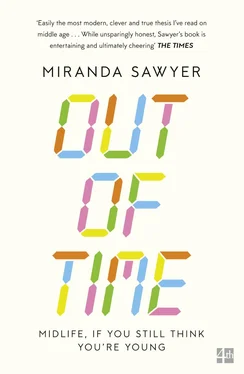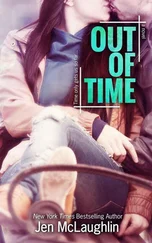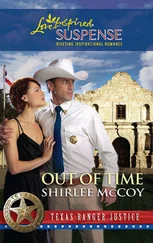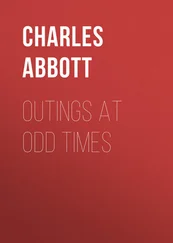Other research has found that great apes – chimpanzees and orangutans – have a similar life pattern. At the end of 2012, a global team (from Edinburgh, Arizona and Kyoto) studied 508 orangutans and chimpanzees and discovered that they suffer from middle-aged angst. As the apes live to around 55, they have their crisis in their late twenties.
Andrew J. Oswald, an economics professor from the University of Warwick, writes: ‘It seems the curve of happiness should no longer be considered a social and economic phenomenon, the preserve of economists, sociologists, social psychologists, psychiatrists or mysticists. Instead, intriguingly, the U shape appears to be so deep within us that it may need a natural sciences explanation.’ Not a crisis, then, a life condition.
More research. Pile it on. Let the book have its breakdown, with me. Let it look at itself and unpick what it sees. Give us the bad stats.
The average age at divorce is 45 for men, 42 for women. In 1970, most divorces happened to people aged between 25 and 29. In 2012, the number of divorces was highest among men and women aged 40 to 45; 65 per cent of divorces are instigated by women; 42 per cent of marriages will end in divorce, after, on average, 11 years.
Adults aged 45-plus are three times as likely as those under 45 to drink every day. Between 1991 and 2008, alcohol-related deaths in the 35–54 age group doubled in number. The percentage of 45–55-year-olds who take cocaine has doubled in a decade. Nearly a quarter of all drink and drug hospital admissions are of people in their forties.
Among marathon-runners, a study shows, 49-year-old men are at the greatest risk of suffering a heart attack; 93 per cent of such attacks occurred in men whose average age was 49. Other studies demonstrate that what is named as ‘pure exercise dependence’ is found most often in men in their forties and fifties.
Almost half of the long-term unemployed (47.2 per cent) are over 50.
There are two age spikes in male suicides in the UK: when men are in their early twenties and early forties. There has been quite a lot of notice taken of those in the younger group, but less support is offered to potentially suicidal middle-aged men. Because, you know, they’re middle-aged men. They’re the powerful ones, surely.
The bad stats. The dip to sadness.
We all want to be happy. But middle age, the time of money problems, of work responsibilities and looming insecurities, of boredom and frustration and a lack of self-realization, of caring for those younger and older than ourselves, of diminishing fitness, energy and relevance: that doesn’t always seem like such a happy place.
I bring up the question of middle age with almost everyone I meet. People tell me odd, illuminating stories that help.
One man I talk to says he had a ‘massive’ crisis a few years ago, when he was in his early forties. It was a nervous breakdown, really, triggered by him splitting up from a long-term girlfriend, but it manifested itself in extreme, searing envy. Of people he didn’t know; of people he knew well. He had to give up seeing several of his oldest friends for a time because, in his eyes, they had everything and he had nothing and he couldn’t hang out with them any more because it was making him so unhappy.
What is unusual about his story was that he was a millionaire. But his cash didn’t help his crisis. This man wanted what his friends had – what I have: a partner and kids. Money made no difference to his situation.
I enjoy this story (the man is no longer in pain), not because it reveals that what everyone wants is to be loved but because I’m down to my last couple of hundred. It affirms what I pretend are my choices: to be married, to have kids, not to have thousands of pounds hanging around in my bank account. Ha! I think. I knew money didn’t bring you happiness! All my favourite books and films told me this. Religion too: Jesus turning over the rich men’s tables in the temple. They all insisted that being not-rich equates with being good. So the reason I haven’t earned millions is because I’m a morally superior person. It has nothing to do with me not having the requisite talent to earn a huge amount, or not caring enough to barter down prices, or not being able to keep hold of money when I have it instead of spending it in the wrong places.
Of course, if I didn’t care about money, I wouldn’t be thinking like this.
Money is part of life, and it should be thought about, as should jealousy. The story is about the man being jealous of his friends’ lives, and also about me being jealous of his.
A story about money.
In my late thirties, I was offered a chunk of cash by a publisher to write a book about Madonna, in honour of her turning 50. Very, very occasionally, S will remind me of this, our non-existent ‘Madonna patio money’. If I’d been able to work out how to write the book, we would be living in a house with a patio, possibly a small area of grass, maybe even – I know, I know – decking.
But I couldn’t bring myself to write 120,000 words about a famous person without some form of cooperation from that person, and Madonna was never going to give me any. I got in touch with a few people she’d worked with, set up some interviews, but when I approached her official representatives, the answer was no. So how would I write the book? Would I need to go through her bins? Did she even have bins? I’d have to follow her around as she got on with her impenetrable life, as she zipped across the world on prearranged schedules I would never be party to. I’d talk to security guards and fans and people who went to the same school as she did forty years ago, to anyone but the inner circle, and what would be the point? I would hate myself and it wouldn’t be the book the publishers wanted.
P was only a baby and I didn’t want to go away for weeks on end, and I didn’t want to write about someone who didn’t want me to write about them.
I gave back the advance. The book didn’t happen. Life went on.
My attitude to money has changed. In my teens and twenties, money was a means to an end. I would work hard for a bit, earn enough to do what I wanted, and then I would stop working to go and do it. Mostly, this involved going away. You don’t need much cash to do that.
Once I had the flight or the ferry ticket, once I jumped on the bus, everything else was fine. If I didn’t have anywhere to stay, I met people who knew a place to crash, or I slept in doorways, or stations (legs inside sleeping bag, money in socks, head on bag, arm crooked through the strap), or on abandoned pallets, or a beach, or I used a tent or crept into abandoned storage containers. I’ve crashed out in the railway station at Milan (after 2 a.m., the police moved us outside the station, to sleep on the pavement in the doorway). Under a bench in a public park in Zürich. On a rock on Lampedusa (all the beaches were sand-less, covered with jagged volcanic outcrops). All fine, because I had somewhere to stretch out and I was usually with a friend.
When I went away then, a lot of time was spent on the basics: where we were going to sleep, what we would eat, how we would get to the next place. No matter who I was with, we would somehow spend all the money we had in the first three days, then survive for weeks. Not having money made us resourceful: we would scour markets as they shut, pick up wonky vegetables, snaffle stale bread. We’d talk our way into nightclubs and then nick drinks, eat free tapas and nibbles put out on bars. We would find hash, smoke some of it and swap the rest for food. We would jump trains on scuffed-up, rewritten tickets. We would accept evenings out from men we knew probably wanted to sleep with us, just to get fed, and then we would run away. We would get by on charm and noisiness. We were young.
Читать дальше










